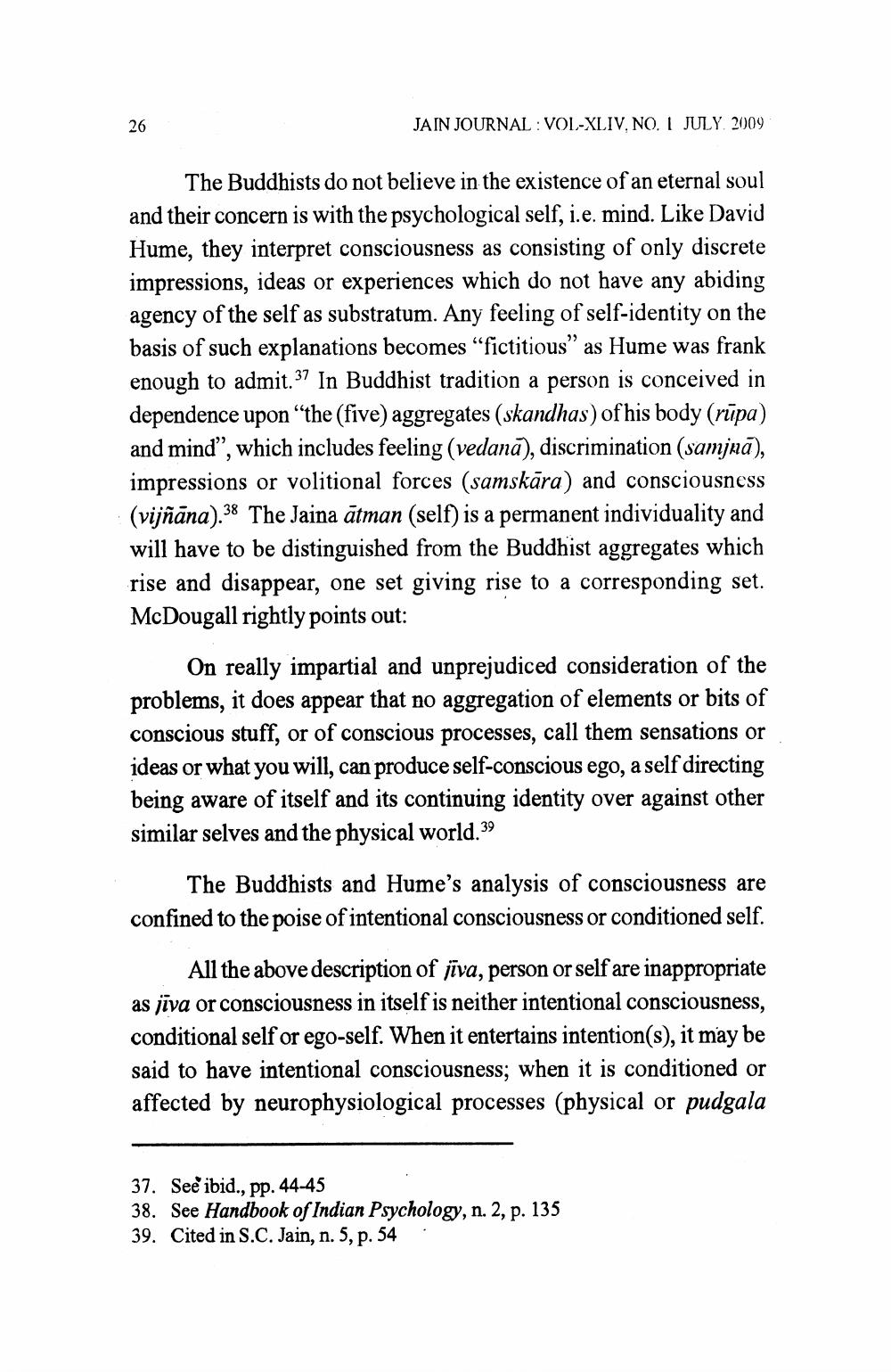________________
26
JAIN JOURNAL : VOL-XLIV. NO. I JULY 2009
The Buddhists do not believe in the existence of an eternal soul and their concern is with the psychological self, i.e. mind. Like David Hume, they interpret consciousness as consisting of only discrete impressions, ideas or experiences which do not have any abiding agency of the self as substratum. Any feeling of self-identity on the basis of such explanations becomes “fictitious” as Hume was frank enough to admit.37 In Buddhist tradition a person is conceived in dependence upon “the (five) aggregates (skandhas) of his body (rūpa) and mind”, which includes feeling (vedanā), discrimination (samjna), impressions or volitional forces (samskāra) and consciousness (vijñāna). 38 The Jaina ātman (self) is a permanent individuality and will have to be distinguished from the Buddhist aggregates which rise and disappear, one set giving rise to a corresponding set. McDougall rightly points out:
On really impartial and unprejudiced consideration of the problems, it does appear that no aggregation of elements or bits of conscious stuff, or of conscious processes, call them sensations or ideas or what you will, can produce self-conscious ego, a self directing being aware of itself and its continuing identity over against other similar selves and the physical world. 39
The Buddhists and Hume's analysis of consciousness are confined to the poise of intentional consciousness or conditioned self.
All the above description of jīva, person or self are inappropriate as jīva or consciousness in itself is neither intentional consciousness, conditional self or ego-self. When it entertains intention(s), it may be said to have intentional consciousness; when it is conditioned or affected by neurophysiological processes (physical or pudgala
37. See ibid., pp. 44-45 38. See Handbook of Indian Psychology, n. 2, p. 135 39. Cited in S.C. Jain, n. 5, p. 54 .




